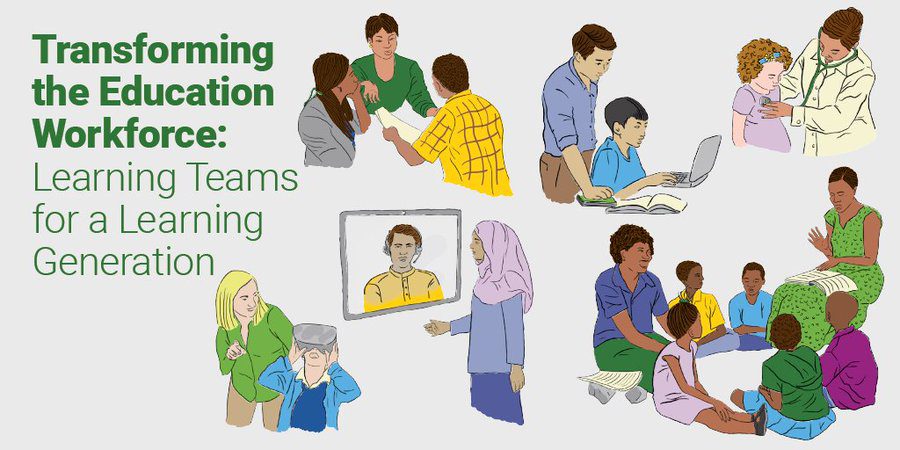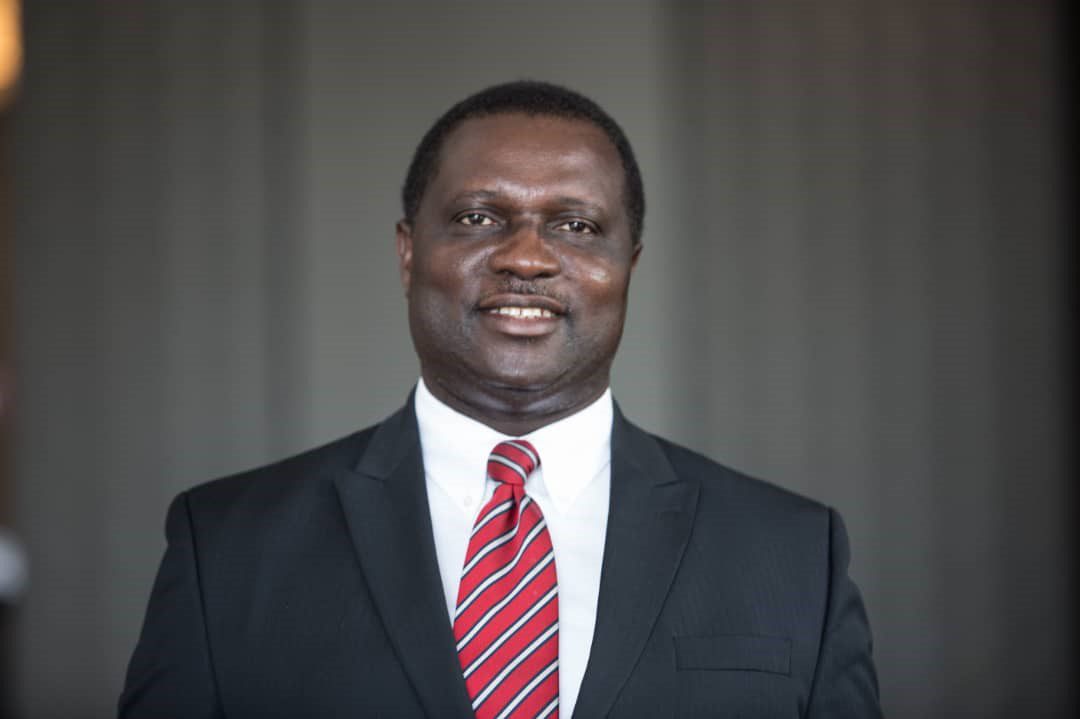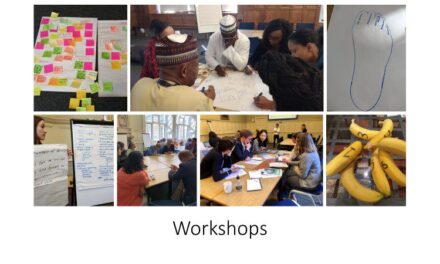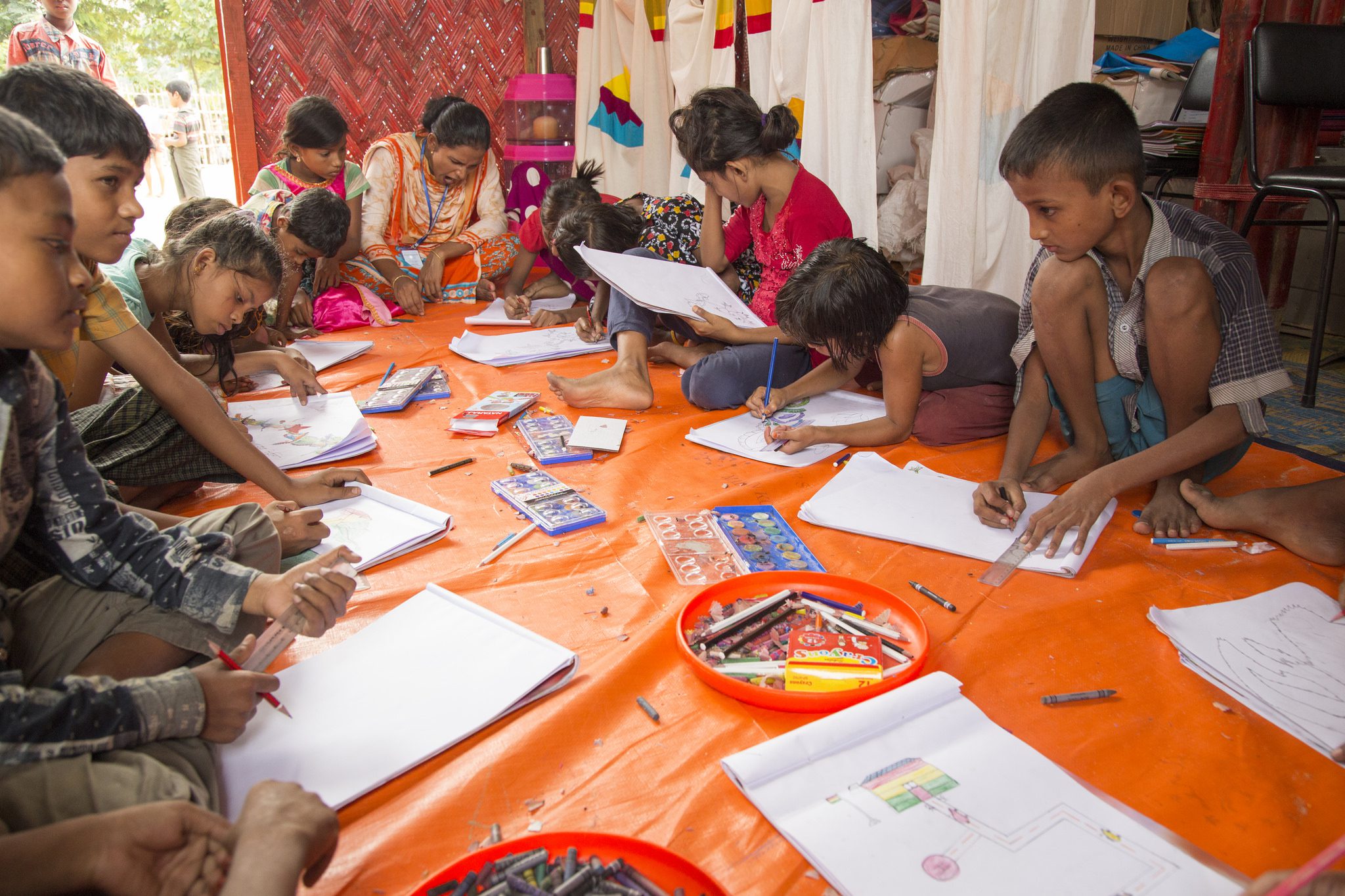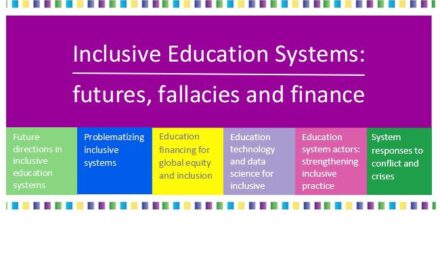By Ruth Naylor, Senior International Consultant with Education Development Trust, and Vice-Chair of the UKFIET 2019 Conference.
 In the closing panel at this year’s 2019 UKFIET conference, Colin Bangay, Senior Education Advisor for DFID in Sierra Leone, described an innovative approach to bringing young women from rural communities into teaching. I smiled… because I knew that UKFIET had played a pivotal role in the design and delivery of that project, by bringing evidence from the field and people together, and enabling good practices and innovations to be shared and scaled.
In the closing panel at this year’s 2019 UKFIET conference, Colin Bangay, Senior Education Advisor for DFID in Sierra Leone, described an innovative approach to bringing young women from rural communities into teaching. I smiled… because I knew that UKFIET had played a pivotal role in the design and delivery of that project, by bringing evidence from the field and people together, and enabling good practices and innovations to be shared and scaled.
Eight years ago at UKFIET 2011, I was particularly struck by a presentation by a team from the Open University on a project they were delivering in Malawi, funded by the Scottish Government. The presentation: ‘She doth teach the torches to burn bright’- rural women returners in Malawi meet Romeo and Juliet, by Kimberly Safford, Deborah Cooper and Freda Wolfenden,[1] described how the project had provided young women who had failed to get their secondary school certificates with distance learning materials and tuition to enable them to (re)sit and pass their exams. In return, the women worked as apprentice learning assistants in local schools. Once they had their exam certificates, they could enter teacher training courses.
The following year, I was involved in the concept design for Plan UK’s proposal for the Girls’ Education Challenge (GEC) step change window… so I advised that Plan should team up with the Open University team and adapt the approach to the Sierra Leone context. Which they did, and they are still successfully implementing with funding from GEC (See Crisp, Safford and Wolfenden 2017). Incidentally, Nafisa Baboo, a key note speaker from this year’s conference was also involved in the proposal design workshop in Freetown back in 2012. So Colin’s comment in the closing plenary linked back not only to UKFIET 2011 but also to this year’s opening plenary.
In both Malawi and Sierra Leone, many rural and remote schools still struggle to recruit and retain enough teachers, especially female teachers, not least because few young women from those communities make it through to the end of high school with the examination grades necessary to enter teacher training courses. The shortage of female teachers contributes to the low quality of education and low aspirations for girls in those communities… a historical educational disadvantage perpetuated through standard teacher training and recruitment practices. The programmes in Malawi and in Sierra Leone break this negative cycle, by providing young women with an accessible route to becoming qualified teachers, whilst at the same time including more women working in rural schools to inspire the next generation of girls and help them learn.
The approach has been identified by the Education Commission in its report on Transforming the Education Workforce, launched in New York last week, as a strategy for bringing underrepresented groups into the workforce and meeting teacher shortages in rural areas.
So where next? And what other good practices have UKFIET conferences helped to spread?
[1] See also Safford, Kimberly; Cooper, Deborah; Wolfenden, Freda; and Chitsulo, Joyce (2013). ‘Give courage to the ladies’: expansive apprenticeship for women in rural Malawi. Journal of Vocational Education & Training, 65(2) pp. 193–207.

